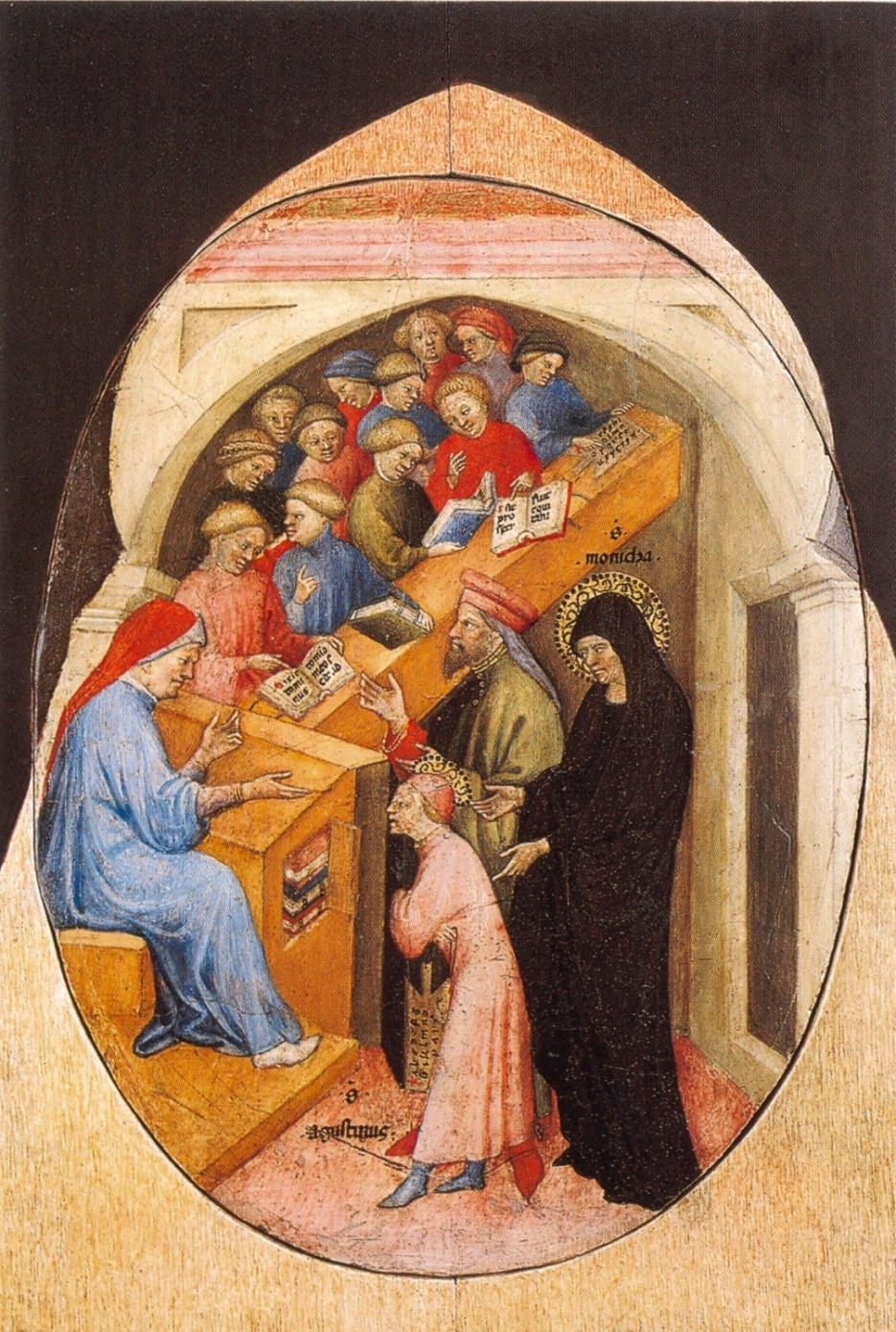While today is not his Feast Day (that’s August 28), November 13 is the anniversary of the birth of Augustine, Bishop of Hippo and prolific author of theologic works, many of which still survive. Church tradition honors the date of a saint’s death, because historically this was the anniversary of martyrdom for many the church wished to remember for their steadfast faith, and later Feast Days honored the death even of those who died in peace in old age. But looking at a birth invites us to consider the childhood and youth of a person, and we are lucky to have in Augustine’s Confessions own recollections of how he grew up in Hippo and what his education was like.
A few years ago, one of Scholars Online’s former students offered to lead a summer course on the first book of the Confessions, helping us read the Latin. You could probably read an English translation of Book I without haste in the course of drinking a cup of tea; it isn’t that long. Our summer course was eight weeks, and it was a struggle for me to make sense of the Latin, partly because Augustine is dealing with some difficult issues, and partly because I was woefully out of practice reading Latin. But in any source exercise, one of the advantages of having to work out our own translation is that it slows us down and forces us to read carefully. We have to stop and think about what the author is trying to tell us, pulling sense out of several possibilities. We can’t just glance over an page and move on, assuming we know what is happening.
Book I of the Confessions is not only a fascinating exploration of how Augustine thought about faith, but also how he learned to speak and read, to engage with others using words, to learn a foreign language, and to read the outstanding works of classical literature. It is an experience that many a classically educated student has shared.
Augustine’s influence on his own time and subsequent centuries has been profound. Already in the century after his death in 430 AD, other writers are commenting on his works: letters, sermons, and books, when they were able to get copies. Many manuscripts of Augustine’s City of God and Confessions survive, three at least from before 700 AD, and dozens from the Carolingian period, when he was popular at Charlemagne’s court among educators and theologians alike. He shaped attitudes toward sin, God, death, the church, and the natural world. I have my Natural Science I students read some of his discussion on the relevance of pagan and classical natural philosophy and the study of nature to the Christian life. Dr. Bruce McMenomy has discussed some of these ideas in his paper “Classical Studies and Christian Education”.
But it is Augustine’s attempt at honest self-examination that fascinates me. In Book I of Confessions, he tells us how he stole fruit, not because he really wanted it, but because he had been told not to touch the fruit, and how as grew to adulthood, he realized that his inclination to sin put him in need of the grace of Christ. That too is an experience with which I can identify, and ponder with profit.

